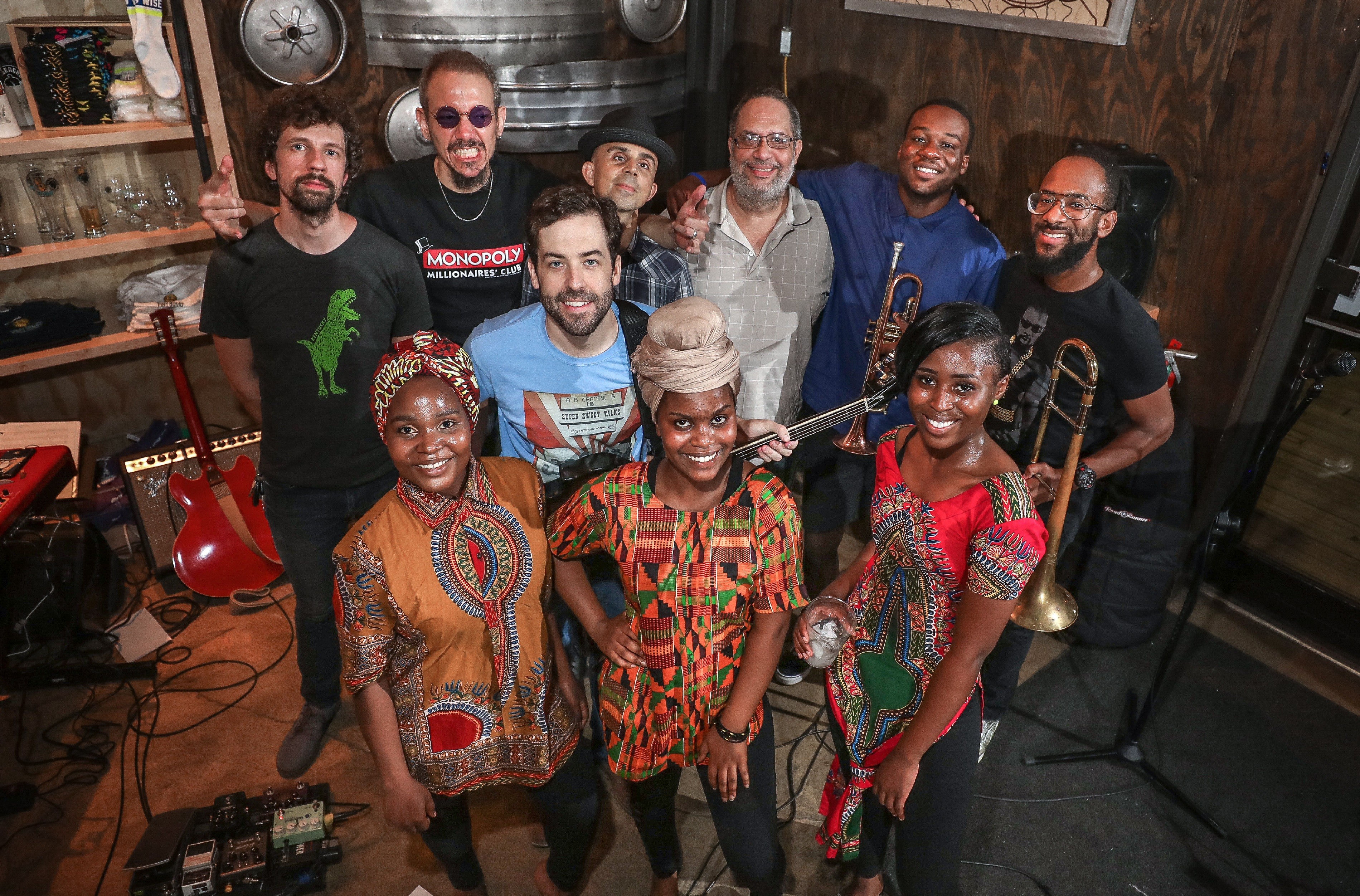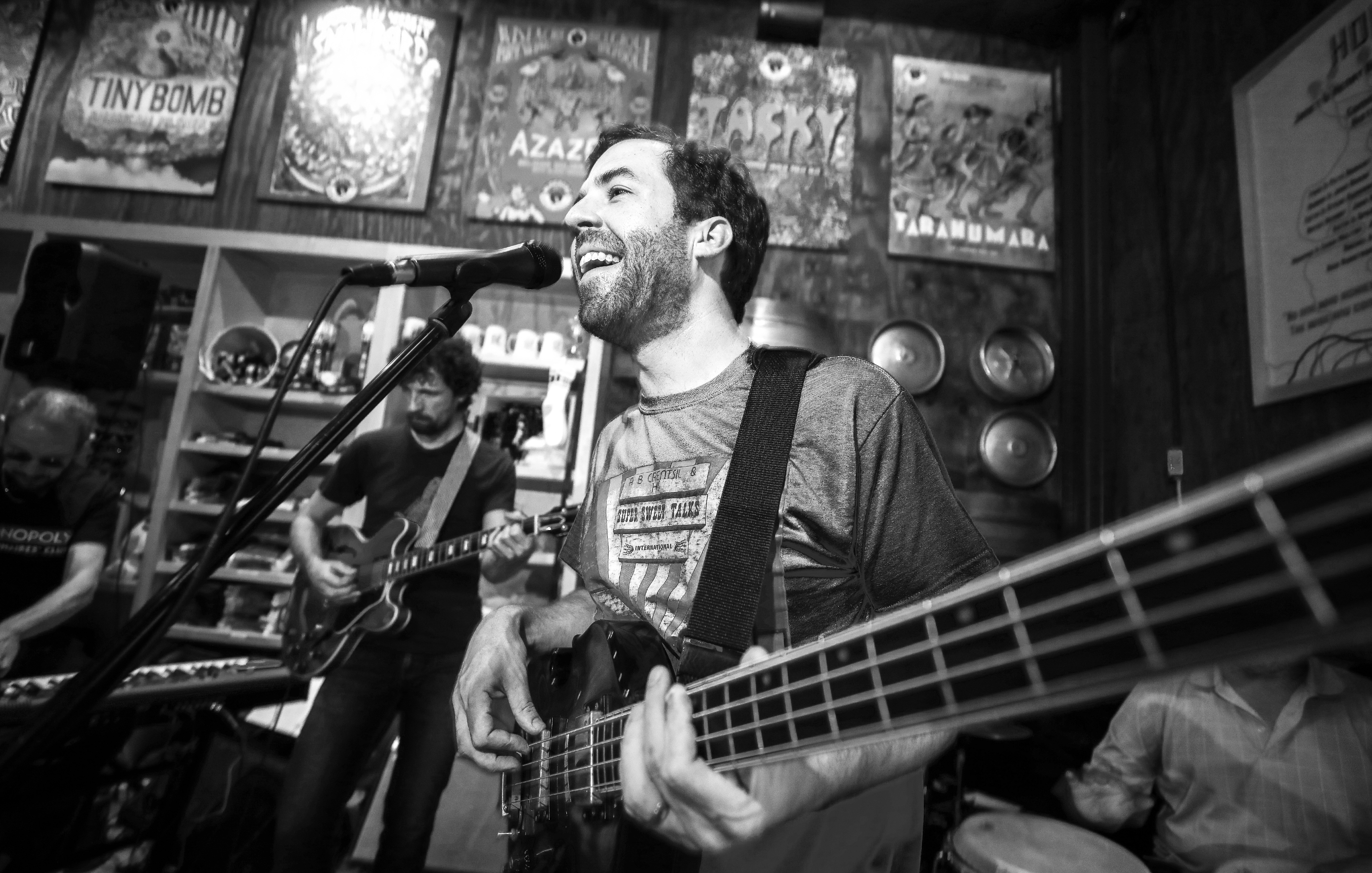“World boogie is coming,” the late Jim Dickinson often quipped, and it’s usually taken to mean that the rhythms and sounds of the South will one day become universally embraced around the globe. But sometimes the rhythmic currents flow in the other direction, as Africa, the mother lode of the groove, resonates with those who have already been steeped in American blues, jazz, and funk, and they go straight to the source.
Such a dynamic informed the musical journey of Adam Holton many years ago, as he absorbed the music of Ghana while studying at the University of Colorado. The Memphis Flyer detailed his journey with the Obruni Dance Band some four years ago, and since that time his journey has continued apace. Now his group, dedicated to the sounds of Ghanaian highlife music, has released an intriguing new EP, Highlife in Memphis.

Put in perspective, it’s a minor miracle that these Memphians have so mastered the rhythms and feel of highlife. Having been a fan of the genre since the ’90s, I know highlife when I hear it, and this is it. The loping, infectious beat, colored by cascading guitar ostinatos, with keyboard jabs added for punctuation, is a musical world unto itself, and this band inhabits that world effortlessly.
Perhaps more importantly, Holton makes the sound his own, with a handful of originals done in classic highlife style that nonetheless flow organically from this white bass player from Memphis. It works largely because Holton delivers the songs in a plainspoken, unaffected voice, free of mimicry or theatrics.
That perfectly suits the subject matter, which, in keeping with the tradition’s classic songs, dwell earnestly on the simple pleasures or frustrations of life. “Flat Roof” is paradoxically joyful plaint about a leak in a rainstorm; “Oh Awurade” can be translated as “Oh Lord,” and is both an exclamation and an earnest prayer; “My Buddy” is a lovely ode to the bond between father and child; and “Lonely,” which ventures into a more Fela Aníkúlápó Kuti-inspried Afrobeat/funk style, dwells darkly on “talking to ourselves in an unaccepting tone.”
As with Ghanaian highlife, the key to Memphis highlife songs is simple, heartfelt expression paired with the complex rhythms of the music. Take these lyrics by Daddy Lumba in the Twi language, translated by a blogger in Ghana:
Ɔdɔ abɔ n’ani akyerɛ me – My love has winked at me
Ɔte biribi ara ase – She understands something
Ɔsere kakra kyerɛ me – She smiles a little at me
Dada, woama ma nane – She makes me melt
Holton echoes these uncomplicated sentiments with “My Buddy”:
Whatever you are
You will be adored
Wherever you go
You will take my love
The real clincher is the strength of the flowing, unhurried melodies, as they unwind over the jumping, rolling rhythms of Ghana. And the band, comprising some of this city’s A-list players (Holton on bass and vocals, Logan Hanna on guitar, Felix Hernandez on congas, Robinson Bridgeforth on drums, Tim Stanek on keyboard, Victor Sawyer on trombone, and Hope Clayburn on saxophone) plays with a looseness and precision that befits the music’s importance in West Africa.
It’s an unexpected perk that Memphis, now celebrating the country of Ghana in this year’s Memphis in May festivities, just happens to have an ace highlife band living here. That happenstance will come to its full flowering this Saturday, May 7, at the Museum of Science & History (MoSH), when the Obruni Dance Band plays the Taste of Ghana event from 6 p.m. to 8:30 p.m.
In collaboration with the Ghanaian Association of Memphis, MoSH will celebrate the history and culture of Ghana with an evening of Ghanaian music, food, shopping, and more. Guests can sample authentic small plates and soups while they enjoy the rhythms of the Obruni Dance Band, as well as hear and share personal stories from the local Ghanaian community.
It’s all part of the new Isaac Hayes: Black Moses Gives Back exhibit at MoSH, a colorful exhibit that introduces a side of Hayes that many may not be familiar with. Hayes was known for his interest in Black pride and Afrocentrism, often sporting African clothing and doing philanthropic work in Ghana. Indeed, he was made an honorary king of the Ada region of Ghana for his work there.
The celebration of Ghana by the Memphis in May International Festival is a perfect time to explore this unlikely and moving example of cultural transformation. Lest anyone condemn it as mere appropriation, take note of the music: it’s from the heart.

 Jamie Harmon
Jamie Harmon  Jamie Harmon
Jamie Harmon